Taking the next step
It has been an eventful and exciting year for all of us across the Can-SOLVE CKD Network.
Over the past year, Can-SOLVE CKD has made significant progress in transitioning from the foundational start-up activities of our first year of operations towards a more active state of implementation. Throughout the reporting period, the network has seen the progression of its overall research agenda, experienced growth in its operational and leadership capacity, increased the scope and depth of patient engagement activities, and played a leadership role in developing novel training curricula, including a cultural safety learning pathway.
In this report, we are pleased to highlight activities from our second year that are helping to change the culture of kidney research in Canada. By listening to, learning from, and leading with patient partners, researchers, policy-makers, and funders, we will transform kidney care and outcomes for all Canadians.
On behalf of the entire Can-SOLVE CKD Network, thank you for your ongoing support. It is through partnership that all our work is possible, and we are proud to be moving forward together.
Dr. Adeera Levin, Dr. Braden Manns, and Dr. James Scholey
Can-SOLVE CKD Network Leadership Team
Building capacity
Patient engagement
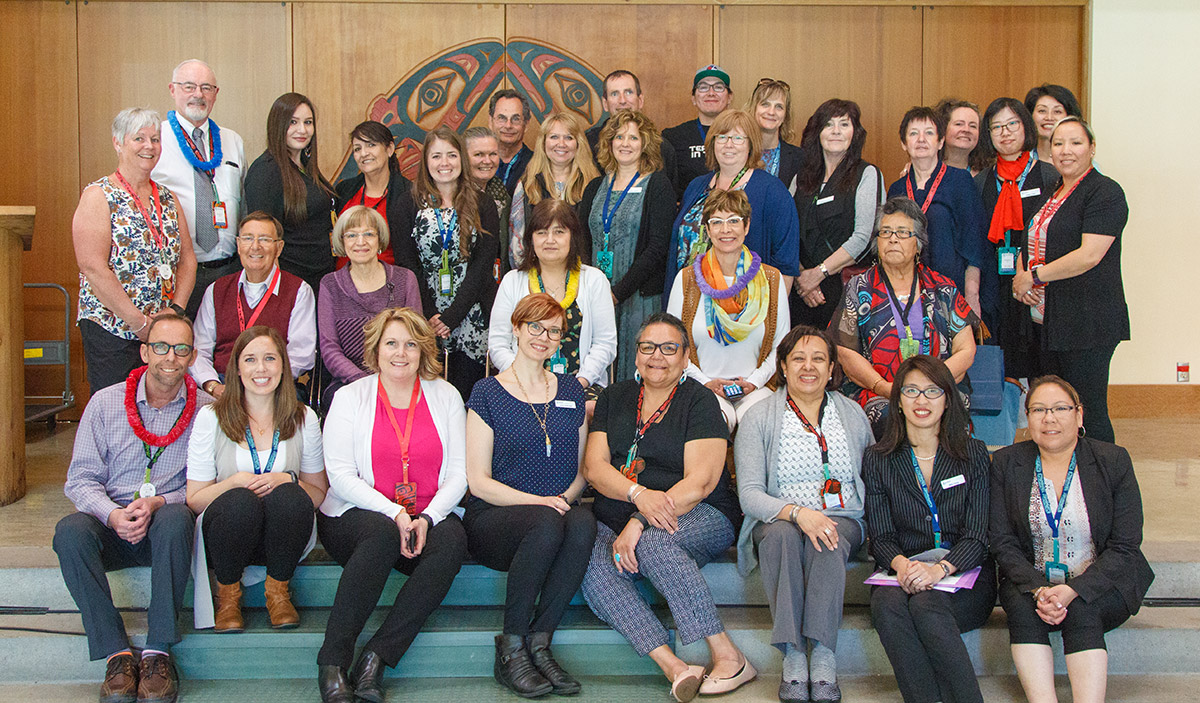
Having successfully convened a robust Patient Council during the network’s start-up phase, the past year has focused on enhancing the involvement of patient partners throughout Can-SOLVE CKD. Check-in meetings have been held with all 18 research teams to assess the current state of patient engagement in each project, identify successes and challenges, and support the creation of strategies to address outstanding issues. Team building has also been advanced through the development of tools to support effective collaboration. Two documents created by Can-SOLVE CKD (“Tips for Collaboration in Patient Engagement” and “Engaging Patients in the Research Process: A Toolkit for Project Leads”) have been shared with network members and disseminated publicly through the network’s communication channels.
The success of these approaches to patient engagement is reflected in the growth of the Can-SOLVE CKD Patient Council from 29 to 35 members, the increase in the number of projects with a designated patient lead, and through the results of the network’s annual patient engagement survey. Of note, respondents to this year’s survey felt strongly that they are better informed about and have greater trust in kidney research as a result of their participation in Can-SOLVE CKD. We have also observed remarkable growth in the abilities and confidence of patient partners, several of whom have taken on larger roles presenting at conferences on behalf of the network and serving as ambassadors in their communities.
Can-SOLVE CKD Patient Council Members
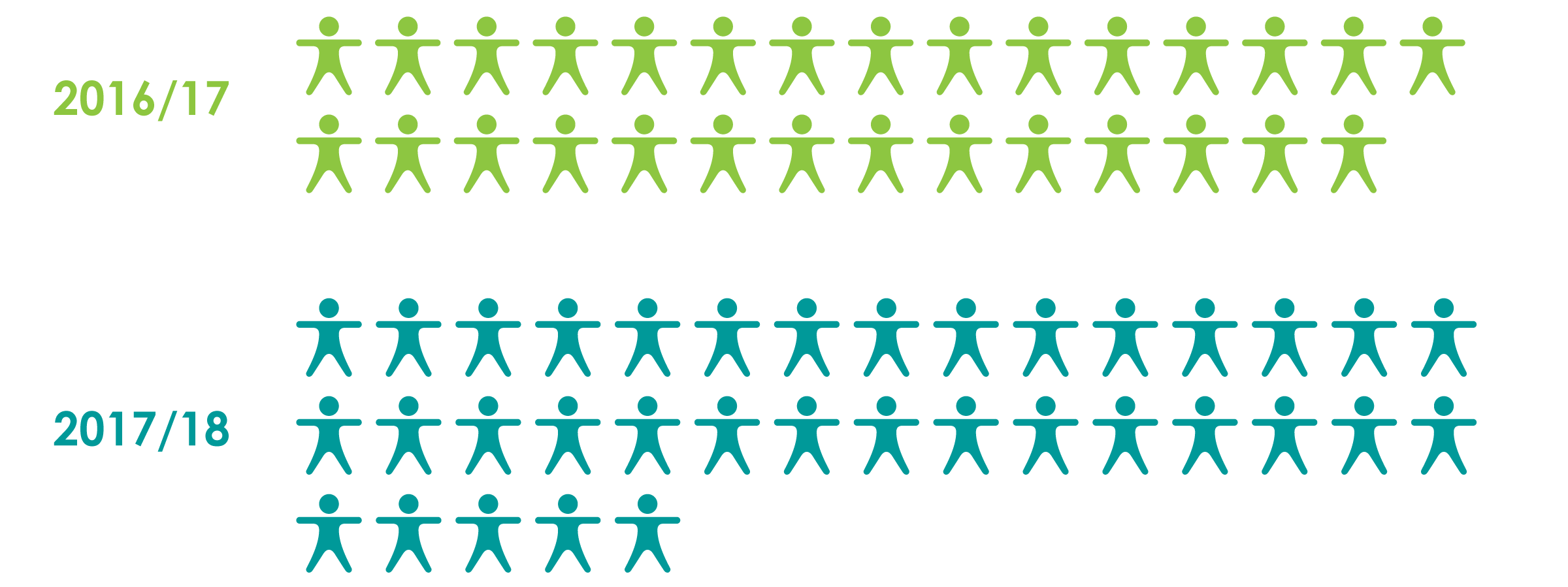
Leadership
This year, Can-SOLVE CKD made several notable additions to its leadership and operational capabilities that will build capacity and support increased effectiveness.
- In January 2018, Dr. Sofia Ahmed joined the network in the role of Sex and Gender Lead. As one of Canada’s leading experts in sex and gender research across people with kidney diseases, Dr. Ahmed is working in an advisory capacity to support sex- and gender-based analysis in all Can-SOLVE CKD research projects.
- In February 2018, Dr. Evelyn Voyageur joined Can-SOLVE CKD as Elder Advisor to counsel the network’s operations team and executive committee on respectful, culturally appropriate engagement of Indigenous individuals and communities. Dr. Voyageur is a registered nurse with a PhD in psychology who has worked extensively in community- and hospital-based health care across British Columbia and Alberta.
- In March 2018, Dr. James Scholey was appointed to the network’s leadership team following an internal leadership capacity-building process. Dr. Scholey’s appointment is an important milestone in expanding the network’s leadership capacity and promoting network sustainability and succession planning.
Read more about these remarkable individuals and the expertise they bring to Can-SOLVE CKD by clicking the boxes below.
Research Operations Committee
The Research Operations Committee (ROC) conducts an annual review of the 18 projects to assess alignment with the objectives of Can-SOLVE CKD and to provide guidance for successful implementation. Aspects that are reviewed include design and methodology, feasibility of implementation plan, risk mitigation strategies, relevance of outputs to Can-SOLVE CKD outcomes, and patient engagement.
The review is conducted by assignment of a primary reviewer (a researcher focusing on scientific methods), a secondary reviewer (a patient partner focusing on patient engagement), and a reader from the leadership team who contributes to the discussion.
The ROC also presents an opportunity for scholars and junior investigators in the Kidney Research Scientist Core Education and National Training (KRESCENT) Program to participate in the review process. To date, project teams have been responsive to the valuable feedback provided by the Research Operations Committee. Project teams have addressed the committee’s concerns and supported recommendations such as dispatching the Patient Engagement Liaison and a Patient Council Executive to help investigators strengthen their patient engagement strategies.
Three patient partners are members of the Research Operations Committee, a unique addition to what has traditionally been a highly technical, closed format. Their participation highlights another benefit to patient partnerships in research: the breadth of professional experience and lived experience of kidney disease which enhanced review of the projects and the committee’s overall functioning. The patient partners have played prominent roles in the review as experts in the lived experience of kidney disease. They also bring additional expertise from their diverse personal and professional backgrounds (business, nursing, etc.).
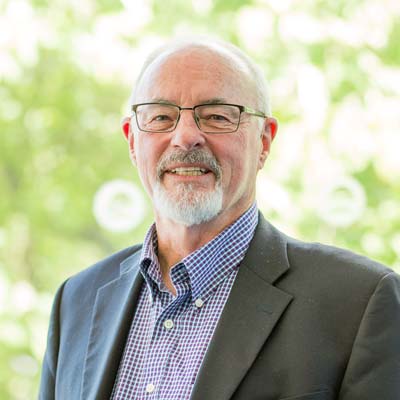
“To be a member of the ROC is not only an amazing learning opportunity but also having the ability to input, from a patient perspective, into the research projects is incredibly fulfilling. The Committee has allowed me to gain a far better understanding of ‘health research’ including such challenges as Research Ethic Board approvals and multi-centre funding requirements. I believe patient engagement is critical in Patient Oriented Research. As a patient partner on the committee, I have had the opportunity to provide meaningful input into each of the research projects.”
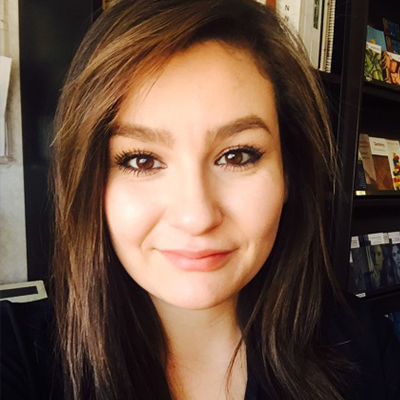
“The ROC was very intimidating at the beginning but the committee is so supportive I never felt incompetent or ‘less than’. It helped me to realize that I have so much knowledge to contribute on patient engagement and I feel my input is really valued and makes a difference for the research teams. I love that it gives me a greater understanding of the research projects and overall the experience has been really positive.”
Canadian CKD Clinic Network
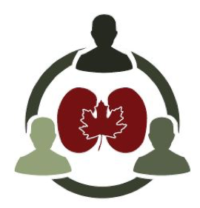 Can-SOLVE CKD has been instrumental in formalizing the Canadian CKD Clinic Network, a national initiative to connect 130+ inter-disciplinary professionals working in renal programs across Canada.
Can-SOLVE CKD has been instrumental in formalizing the Canadian CKD Clinic Network, a national initiative to connect 130+ inter-disciplinary professionals working in renal programs across Canada.
The Canadian CKD Clinic Network aims to:
- Improve understanding and sharing of best practices, polices, and models of care within multidisciplinary CKD clinics.
- Coordinate linkages to national organizations to encourage knowledge generation/translation activities to support evidence based practices, patient engagement and clinical research.
- Develop a national framework for development and dissemination of tools/resources for patients and CKD clinic staff.
- Define common set of outcome measures for CKD clinic care
This network will be an effector arm of Can-SOLVE CKD supporting dissemination of results and potential scale-up/spread of highly relevant Can-SOLVE CKD projects.
Training and education
The Can-SOLVE CKD Network has a broad focus spanning patient engagement, kidney health research, and Indigenous cultural safety in research. To enhance researcher and patient knowledge and skills across the network’s core activities, we are developing a novel training curriculum.
Training and education
Curriculum development
The Can-SOLVE CKD Research Training and Mentorship Committee administered a survey to network members in summer 2017 to determine the greatest training needs. In response to the survey results, five learning nodes aligned with the network’s core activities have been proposed.
All of the nodes are currently under development or in a pilot phase and will be launched broadly according to their specific project timelines. Some training modules will be available to individuals outside the network as well (i.e., “Fundamentals of Kidney Health Research in Canada” and Wabishki Bizhiko Skaanj).
Read the summaries below to learn more about the proposed learning modules and their planned delivery.
Wabishki Bizhiko Skaanj Learning Pathway
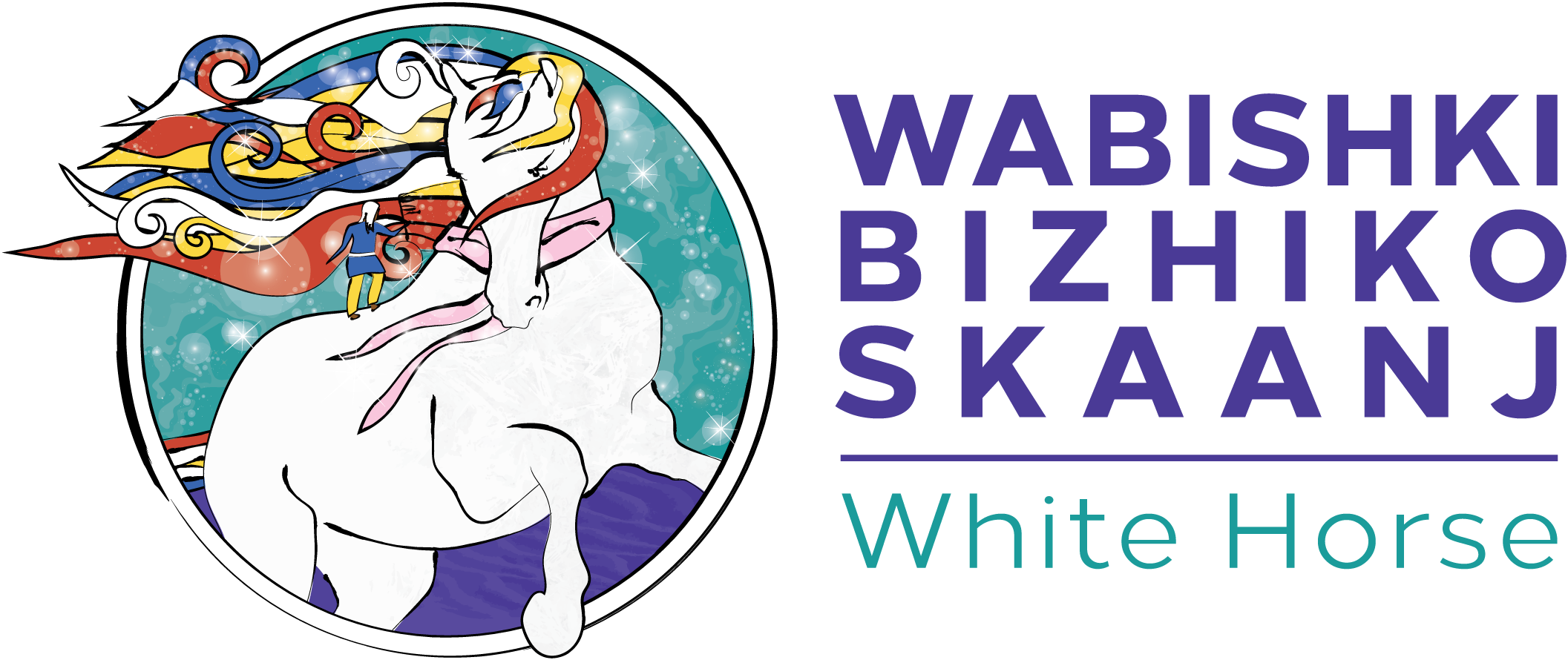 Can-SOLVE CKD and Diabetes Action Canada are partnering to create a new training platform that will help researchers and patient partners build respectful partnerships with Indigenous peoples.
Can-SOLVE CKD and Diabetes Action Canada are partnering to create a new training platform that will help researchers and patient partners build respectful partnerships with Indigenous peoples.
Wabishki Bizhiko Skaanj (wah-bish-kih biish-ih-goo skaa-nch) is a learning pathway that aims to enhance researchers’ knowledge and awareness of racial biases, Indigenous voices and stories, the impact of colonization on Indigenous health, and culturally safe health research practices. Existing resources such as San’yas, Tri-Council Policy Statement Chapter 9, and the KAIROS Blanket Exercise will form foundational elements of the pathway. Participants may complete one or more components of the pathway depending on their learning needs and ability. Self-reflection will be a critical part of each component.
The objectives of Wabishki Bizhiko Skaanj are closely aligned with those of the Can-SOLVE CKD Network. Participants are encouraged to look, listen, learn, and lead their way along the pathway:
- Looking: Look within to observe and examine racial identities, privileges, and biases
- Listening: Listen to Indigenous voices and stories by participating in interactive learning exercises, facilitated online modules and webinars
- Learning: Enhance knowledge of the history of colonization in Canada and its impacts on Indigenous peoples and their health
- Leading: Reflect on the learning and commit to taking appropriate actions in building genuine partnerships with Indigenous peoples and communities in the spirit of reconciliation.
The Can-SOLVE CKD Indigenous Peoples’ Engagement and Research Council (IPERC) has commissioned a working group to develop the pathway’s content and oversee its roll-out. The working group is led by Helen Robinson-Settee and includes members of the Can-SOLVE CKD Network, Diabetes Action Canada, First Nations Health Authority (BC), and Provincial Health Services Authority (BC) Indigenous Health.
Patient-Oriented Research Training
Can-SOLVE CKD has delivered patient-oriented research training to a wide variety of stakeholders and this year collaborated with CHILD-BRIGHT Network to offer the Foundations in Patient-Oriented Research curriculum.
The two networks hosted a one-day workshop on March 12, 2018 at which the Foundations in Patient-Oriented Research curriculum was presented. Facilitators Helen Chiu (Can-SOLVE CKD Patient Engagement Liaison) and Pierre Zwiegers (CHILD-BRIGHT Training Coordinator) led 13 participants through all three modules of the Foundations curriculum using a combination of an in-person learning workshop and an online webinar.
The adapted curriculum, originally developed by CIHR’s Curriculum Reference Group, is being offered around the country to individuals working in patient-oriented research. It aims to build partnerships between researchers and patients that are based on inclusiveness and mutual respect. Can-SOLVE CKD has previously offered all three modules to network members at training sessions across Canada. In particular, Module 3 was integrated into the program of the 2017 Can-SOLVE CKD Annual Meeting in Montreal.
As of March 31, 2018, Can-SOLVE CKD has provided foundational training in patient-oriented research to more than 90 network members.
Research
The Can-SOLVE CKD research program comprises 18 multidisciplinary projects spanning basic science, clinical and population health research.
These projects are organized around three themes identified in collaboration with patients, health care providers, and policy-makers: earlier diagnosis, better treatments, and innovative care. Together, the research projects will close existing gaps in kidney disease knowledge and care to deliver better health outcomes for patients.
Our first year of operations focused primarily on building the foundation for a national research network. A necessary step in releasing funds to each of our projects was the completion of formalized funding agreements with host institutions. With most projects having several sources of funds and a mix of cash and in-kind contributions, these agreements were complex.
We are pleased to report that all funding agreements and contracts were successfully completed in Year 2, enabling funds to flow to each of our research projects and core infrastructures. As a result, we have seen the progession of our overall research program as many research projects transition to an active state of implementation.
A selection of our research projects and their activities are profiled in the boxes below.
New publications in 2017/18
Supporting reconciliation
Learning
In the spirit of truth and reconciliation, the Can-SOLVE CKD Network is committed to fostering an understanding of the histories and cultures of Indigenous peoples as a foundation for respectful partnerships.
Over the past year, we have undertaken many activities that have supported researchers and patient partners to become more aware of racial biases, Indigenous voices and stories, the impact of colonization on Indigenous health, and culturally safe health research practices.
Click the boxes below to learn more.
Research
Through the wisdom and guidance of the Indigenous Peoples’ Engagement and Research Council (IPERC) we are learning to incorporate Indigenous ways of knowing into health research. With this knowledge, our three Indigenous-focused projects have developed culturally appropriate research protocols that promote better kidney health for Indigenous communities and individuals.
- Kidney Check – Identifying diabetes and chronic kidney disease in Indigenous communities
- Improving Indigenous knowledge about treatment options
- Improving Renal Complications in Adolescents with Type 2 Diabetes (iCARE)
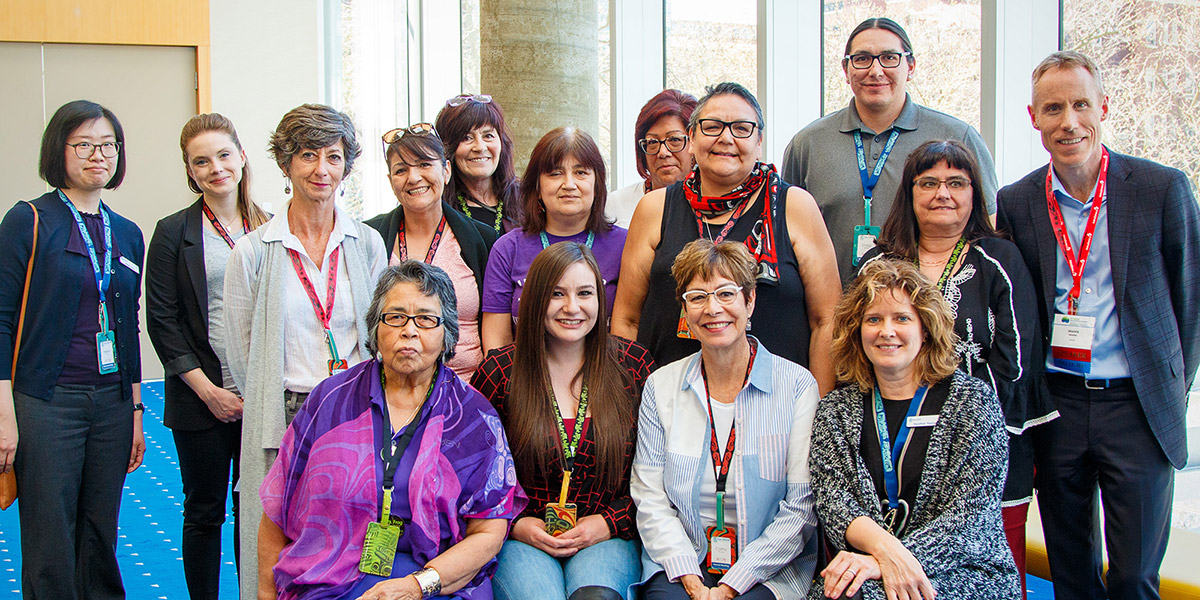
IPERC has created a culturally safe space for Indigenous individuals to participate in all aspects of patient-oriented kidney research. The council has instituted guidelines on ceremony and Elder participation that ensure recognition of traditional knowledge and territories. IPERC is also creating a cultural safety learning pathway for health researchers, patient partners and policy-makers.
Through IPERC, the Can-SOLVE CKD Network offers a model for respectful engagement of Indigenous communities in health research. By adopting Indigenous ways of knowing and fostering cultural competency, the network is working to enhance kidney health outcomes and overall wellness for and with Indigenous peoples and communities.
Ceremony
IPERC has guided the network on incorporating ceremony in our activities, as appropriate. For example, our meetings are opened with a statement recognizing the traditional territory on which the meeting is being hosted. Territorial acknowledgement is also included on our website, in our email signatures, and in all presentations.
Other activities include:
- ensuring an Elder is present to provide a welcome and provide advice, teachings, and guidance during meetings as needed
- sharing circles
- blanket ceremonies
- smudging
- offering of tobacco
- opening/closing prayers
We also endeavour to support the commercial aspirations of Indigenous people by sourcing their services when and where possible. This year we have worked with Indigenous caterers for meal services at events, purchased local Indigenous gifts for meeting participants, and hosted gatherings at Indigenous venues, including the Vancouver Aboriginal Friendship Society and the University of British Columbia Longhouse.
Over the coming year, we look forward to continuing development of the Wabishki Bizhiko Skaanj learning pathway, advancing the work of our Indigenous research projects, and ensuring that all we do is aligned with and supportive of the Truth and Reconciliation Commission’s calls to action related to health.
Note: The terms “Year 1” and “Year 2” are used throughout this section in reference to the first two years of Can-SOLVE CKD’s operations. Year 1 is FY 2016/17 and Year 2 is FY 2017/18.
Planned Spending for Year 2: $16.7M*
Actual expenditures
Unspent funds for carry-forward to Year 3
* includes Year 1 unspent budget carried over to Year 2
Year 2 Actual Expenditures vs. Planned Spending
% of Total Actual Spending over Total Planned Spending
% of Actual Cash Spending over Planned Cash Spending
% of Actual In-Kind Support over In-Kind Commitment
Total Spending vs. Accumulated Budget by Research Project
% of Year 2 Cash and In-Kind Actual Spending over Sum of Year 1 Unspent Funds and Year 2 Budget
Theme 1: Earlier diagnosis
Theme 2: Better treatments
Theme 3: Innovative care
Year 2 Actual Network-Wide Spending (Cash and In-Kind) by Category
Research staff, trainees, contractors, and patient partners’ honoraria.
Compensation costs of administrative team supporting the projects and day-to-day activities of the network.
All costs associated with the Can-SOLVE CKD Annual Meeting, workshops, conferences, and governance.
Combined costs of supplies, educational materials and services, study supplies for sites, and survey costs.
Total Research Budget for 18 Projects and 5 Core Infrastructures
Thank you!
Together we will transform kidney health for all Canadians
Connect
Contact
Heather Harris, Executive Director
604-682-2344 ext. 64025
hharris@cansolveckd.ca

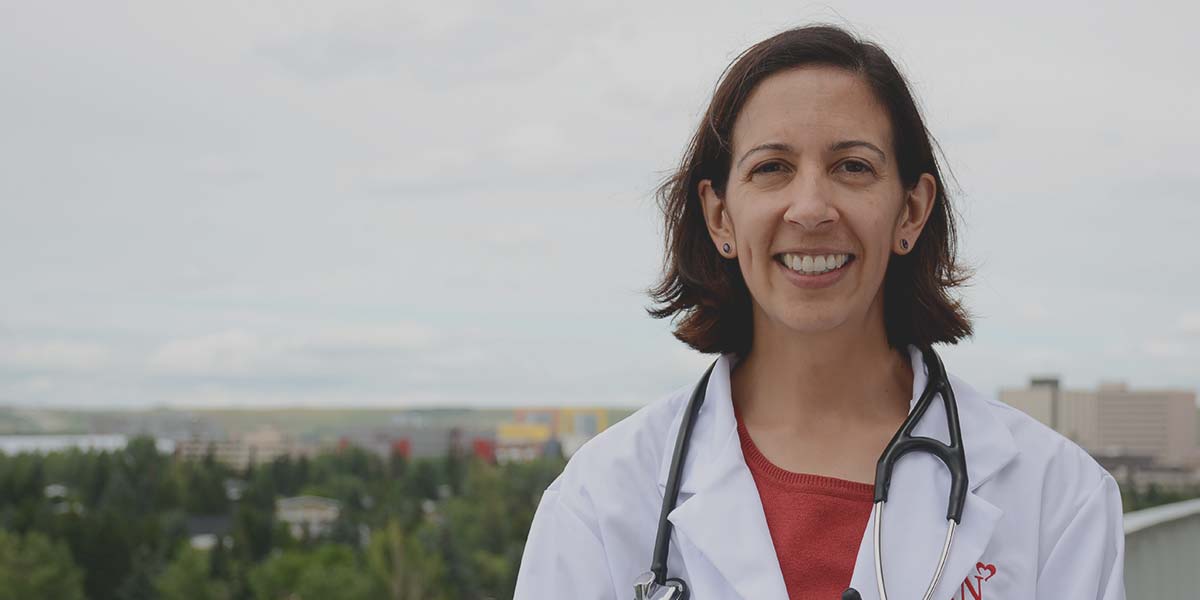 Can-SOLVE CKD is committed to overcoming barriers to care that are driven by social health determinants, including sex and gender.
Can-SOLVE CKD is committed to overcoming barriers to care that are driven by social health determinants, including sex and gender.
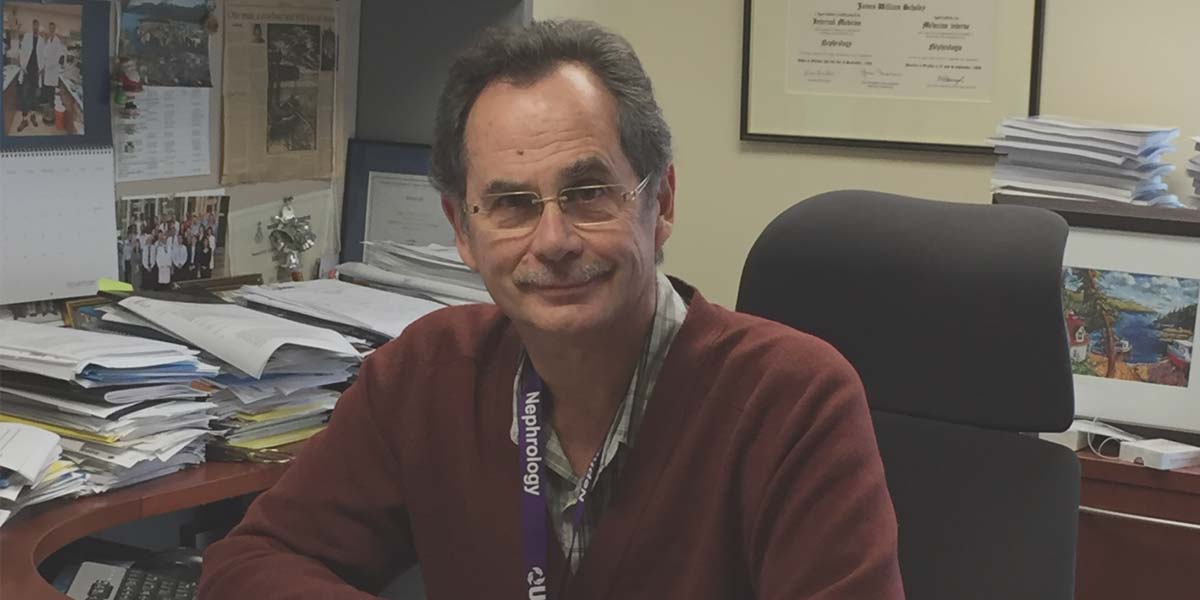

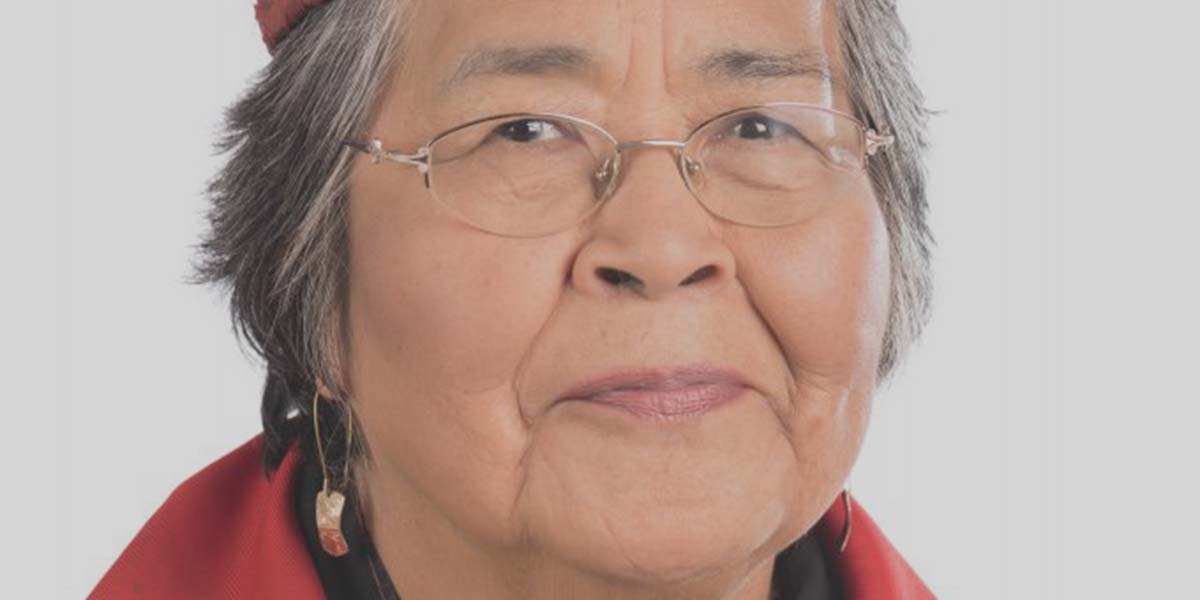 Dr. Evelyn Voyageur, an Elder of the Kwakwaka’wakw Nation, has agreed to support the Can-SOLVE CKD Network in the role of Elder advisor. In this capacity, she will counsel the network’s operations team and executive committee on respectful, culturally appropriate engagement of Indigenous individuals and communities.
Dr. Evelyn Voyageur, an Elder of the Kwakwaka’wakw Nation, has agreed to support the Can-SOLVE CKD Network in the role of Elder advisor. In this capacity, she will counsel the network’s operations team and executive committee on respectful, culturally appropriate engagement of Indigenous individuals and communities.
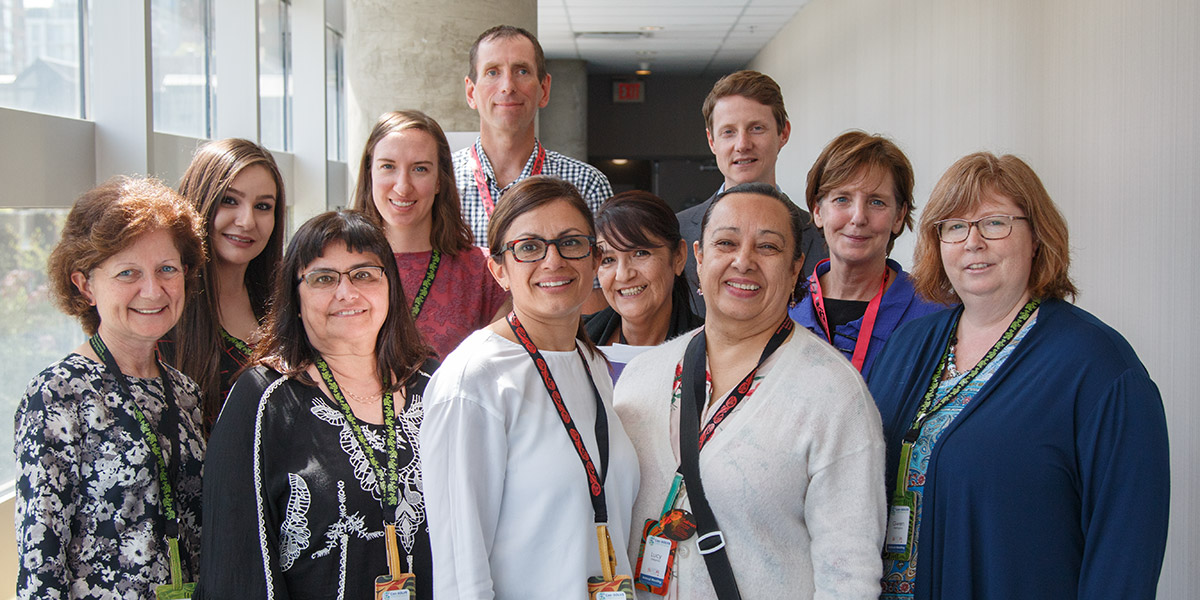 How can we better enable self-management of chronic kidney disease, where appropriate, for adults? That’s the question one of Can-SOLVE CKD’s research teams is working to answer in partnership with kidney patients and family or friends who play caregiving roles.
How can we better enable self-management of chronic kidney disease, where appropriate, for adults? That’s the question one of Can-SOLVE CKD’s research teams is working to answer in partnership with kidney patients and family or friends who play caregiving roles.
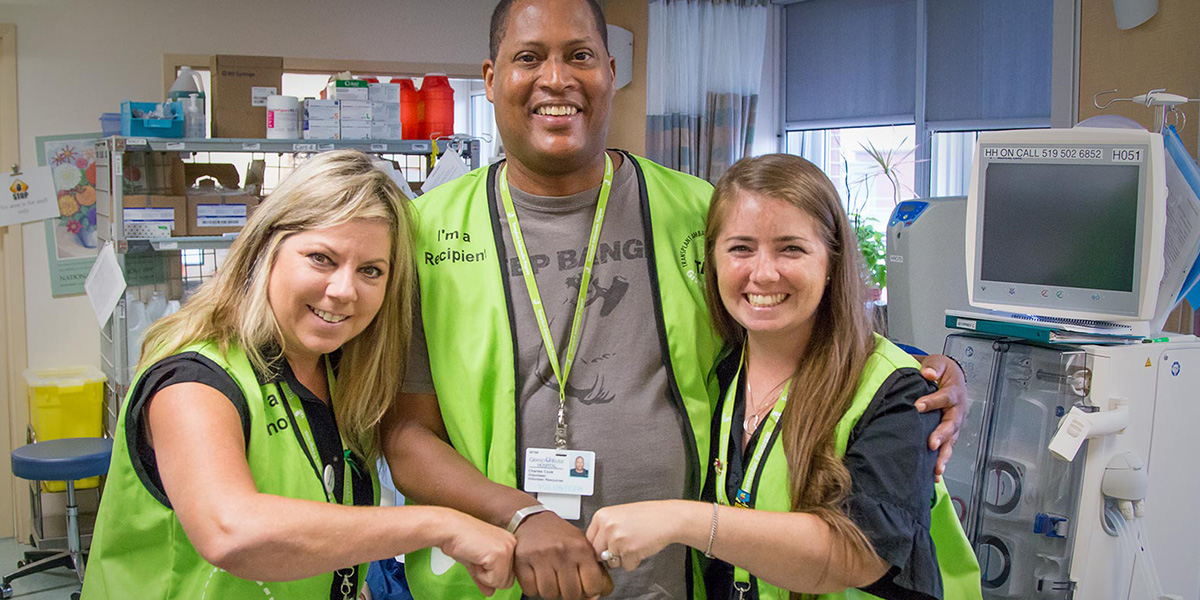 Transplantation offers kidney patients longer life and renewed quality of life, all at a fraction of the cost of dialysis. Unfortunately, there are too few deceased donors to meet the demand for transplantable kidneys. This project will develop solutions to help overcome barriers to living kidney donor transplantation in Canada, which has been highlighted as a high-priority area for improvement by prior donors, prospective donors, recipients, and health care professionals. The project has two main priorities: to improve the quality and efficiency of the donor candidate evaluation process throughout Canada and to evaluate provincial solutions to support patients with kidney failure in their pursuit of living kidney donation.
Transplantation offers kidney patients longer life and renewed quality of life, all at a fraction of the cost of dialysis. Unfortunately, there are too few deceased donors to meet the demand for transplantable kidneys. This project will develop solutions to help overcome barriers to living kidney donor transplantation in Canada, which has been highlighted as a high-priority area for improvement by prior donors, prospective donors, recipients, and health care professionals. The project has two main priorities: to improve the quality and efficiency of the donor candidate evaluation process throughout Canada and to evaluate provincial solutions to support patients with kidney failure in their pursuit of living kidney donation.
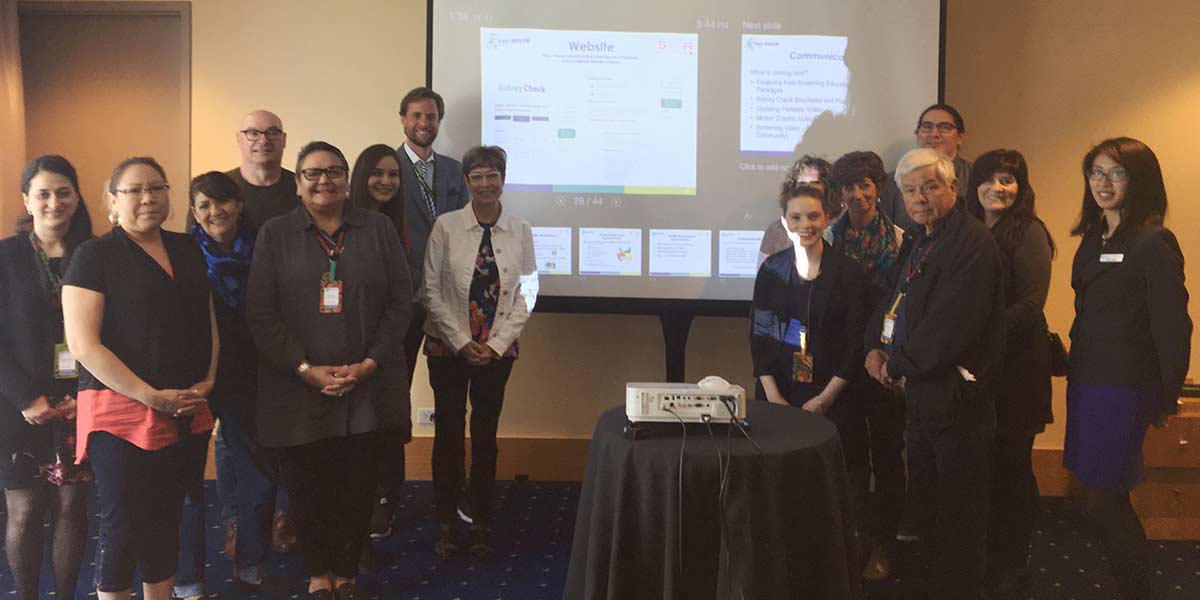 Indigenous people have a higher risk of CKD and kidney failure compared to the non-Indigenous population. This may be due to increased rates of diabetes, particularly in children, which can lead to CKD in early adulthood. In addition, many Indigenous people live in rural communities where there is limited access to doctors and appropriate health care services. As a result, many community members have to leave behind their homes and families in order to receive treatment. Therefore it is very important to diagnose CKD early, or catch those individuals at the highest risk, so that early treatments can help prevent CKD or stop the progression to kidney failure.
Indigenous people have a higher risk of CKD and kidney failure compared to the non-Indigenous population. This may be due to increased rates of diabetes, particularly in children, which can lead to CKD in early adulthood. In addition, many Indigenous people live in rural communities where there is limited access to doctors and appropriate health care services. As a result, many community members have to leave behind their homes and families in order to receive treatment. Therefore it is very important to diagnose CKD early, or catch those individuals at the highest risk, so that early treatments can help prevent CKD or stop the progression to kidney failure.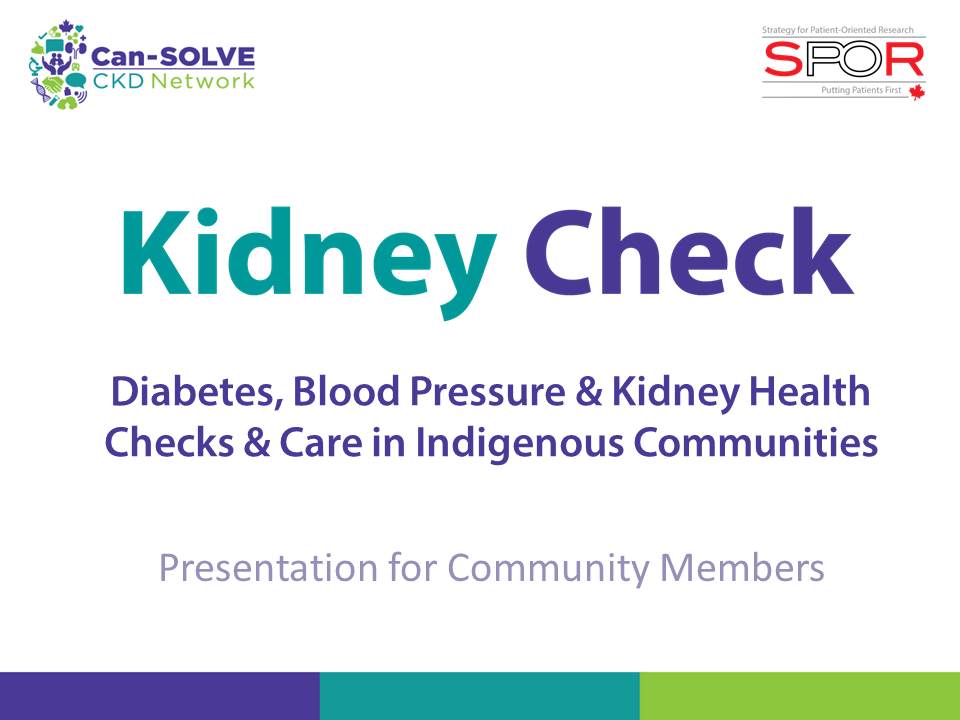
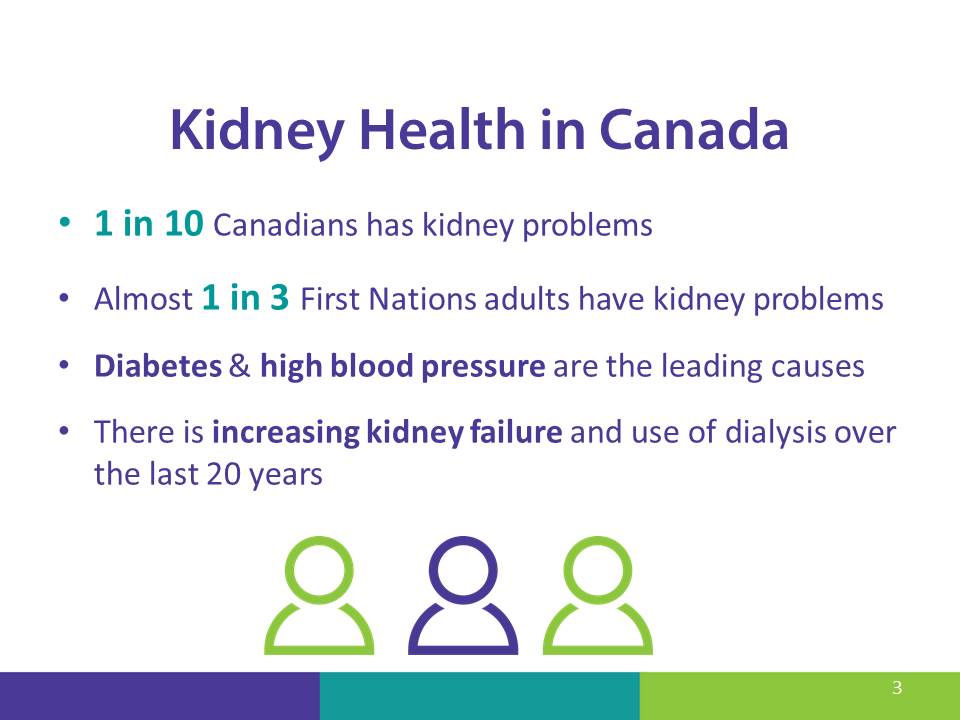
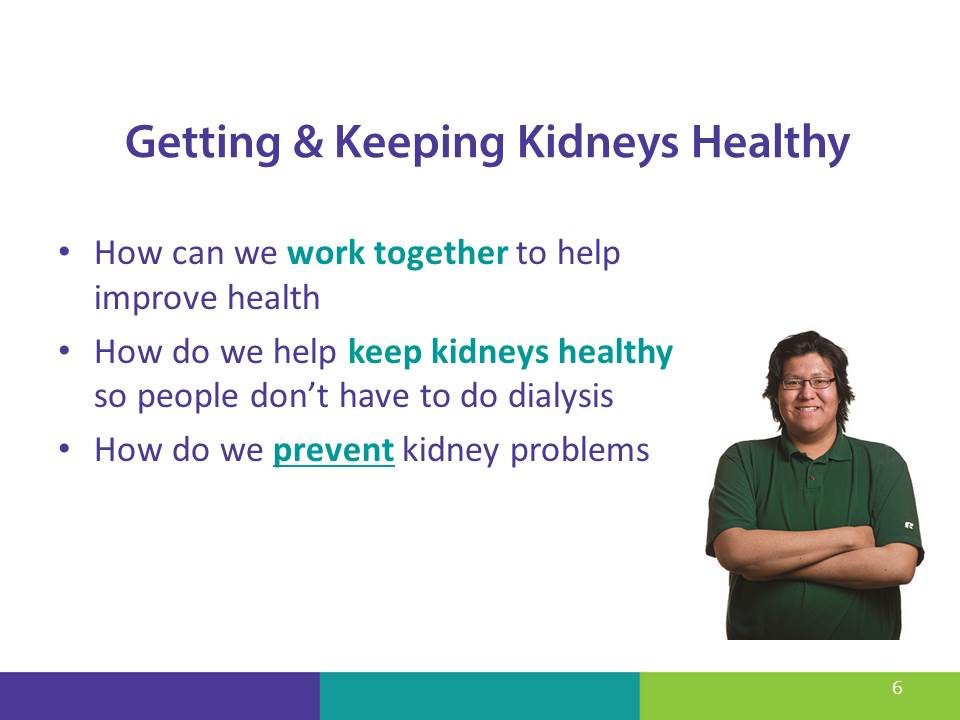
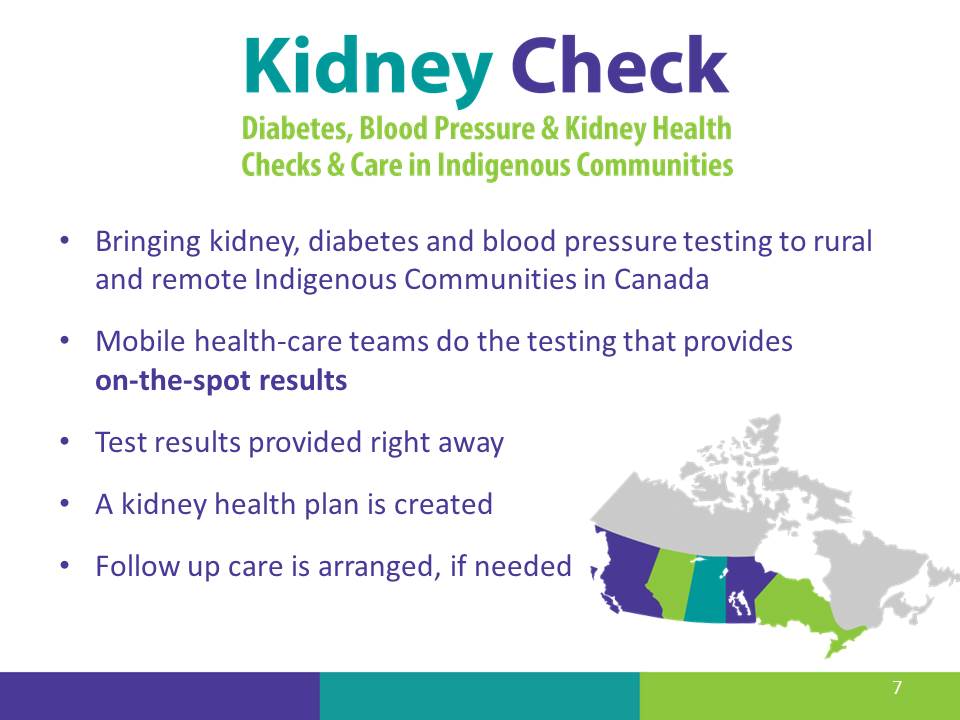
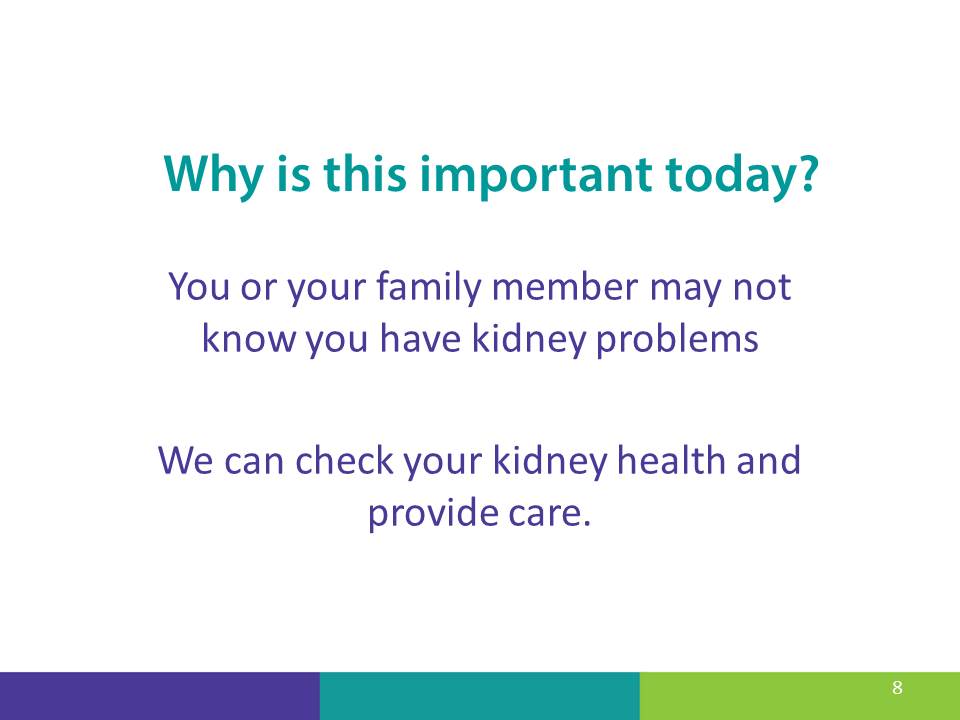
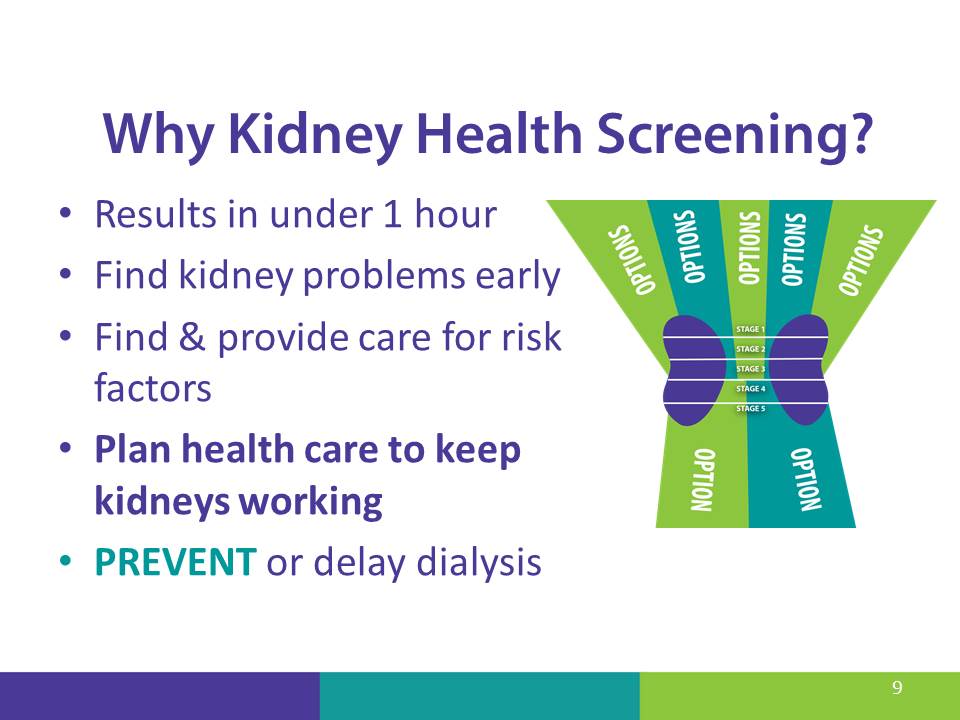
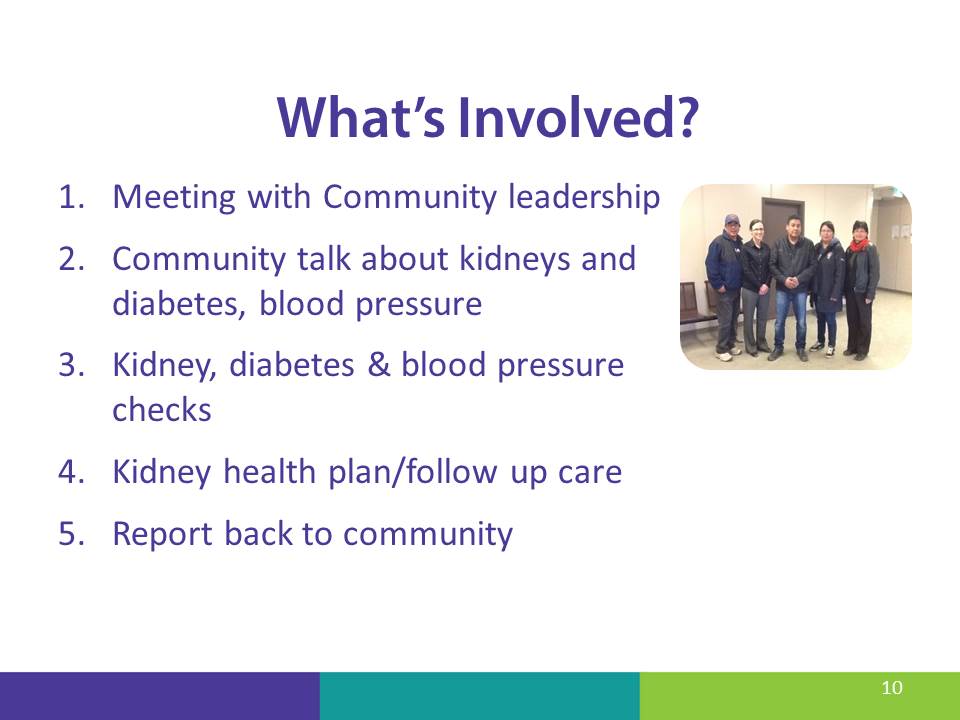
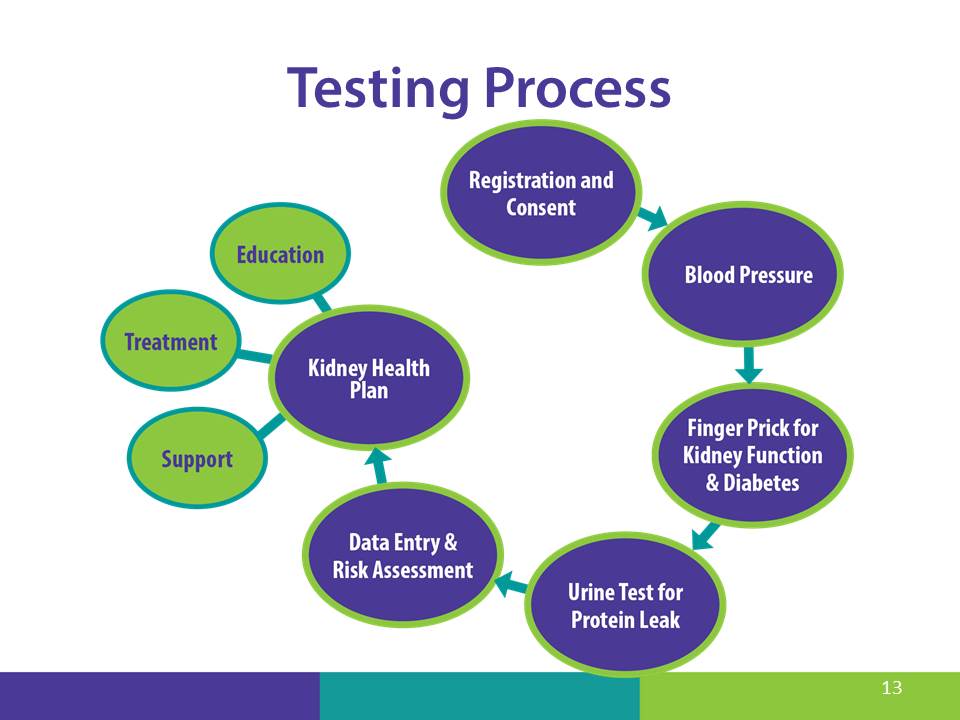
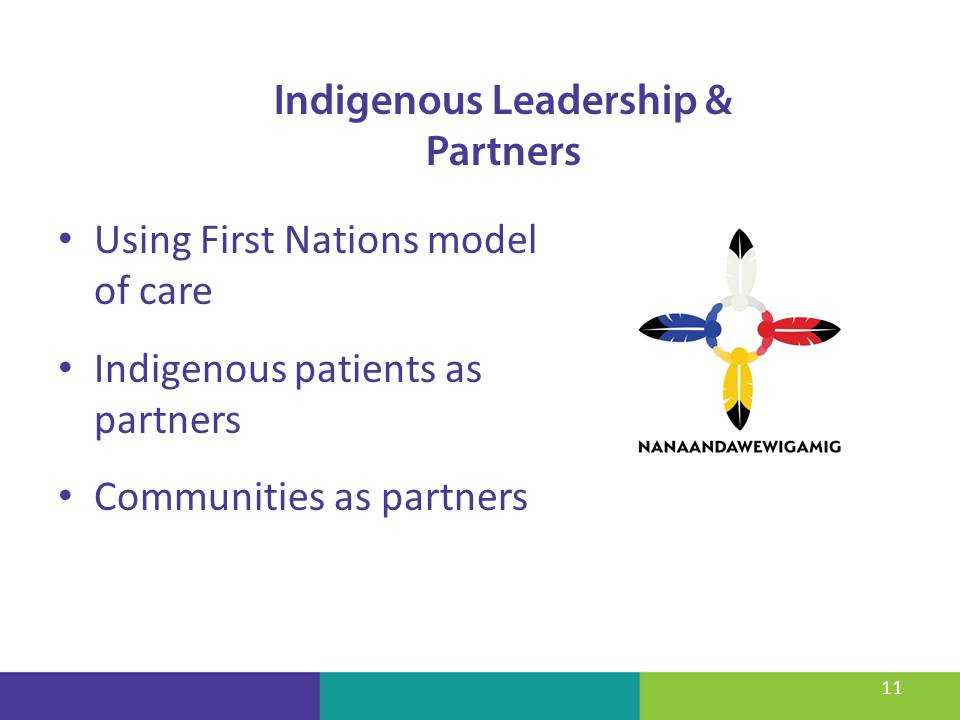
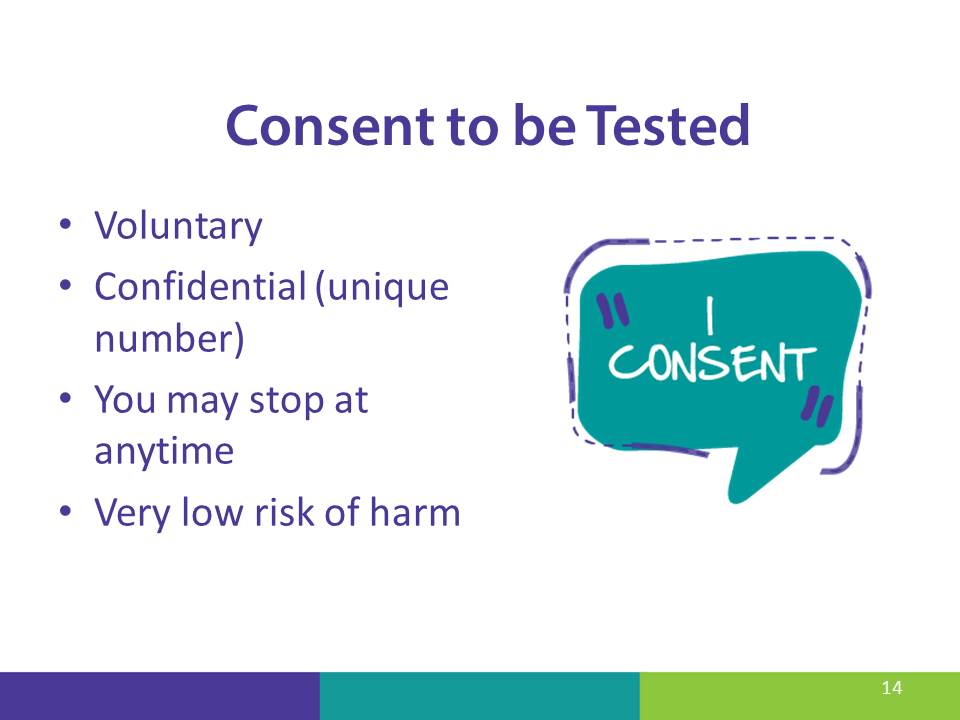
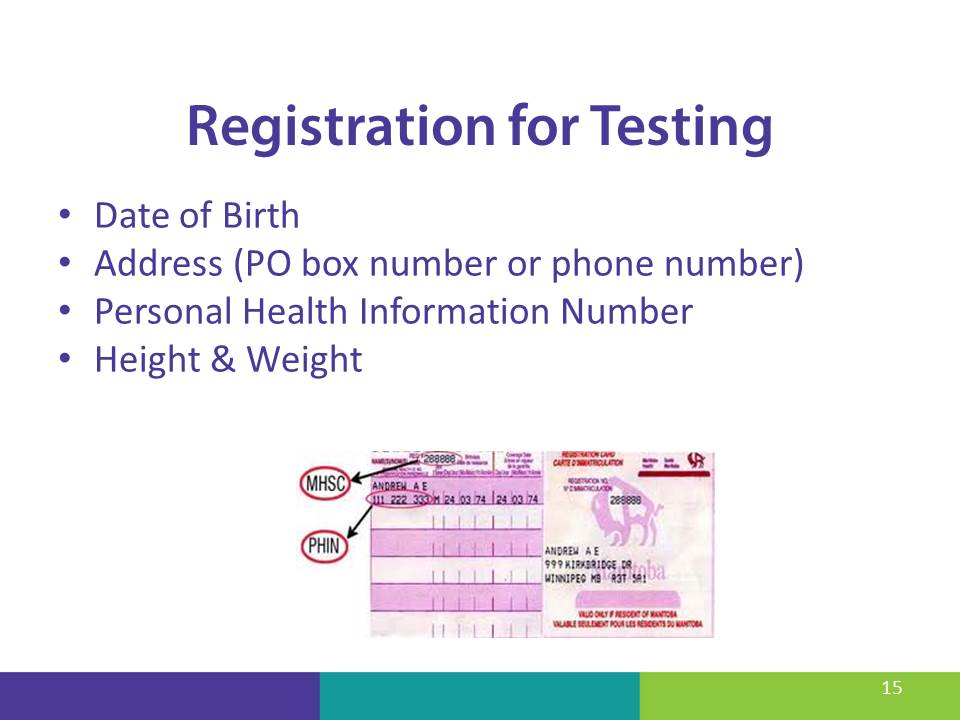
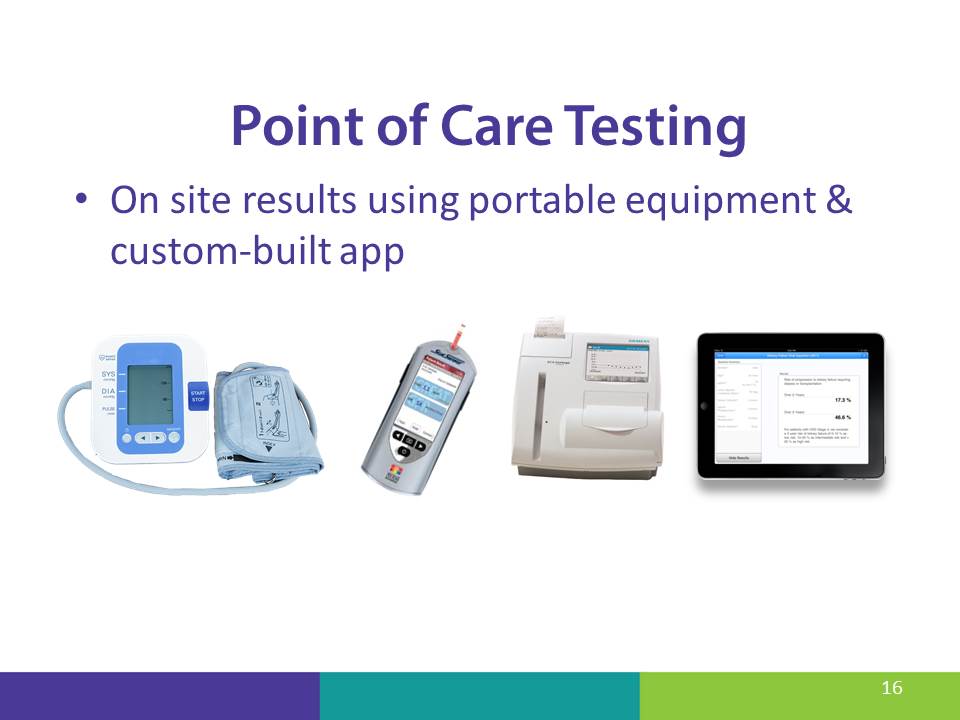
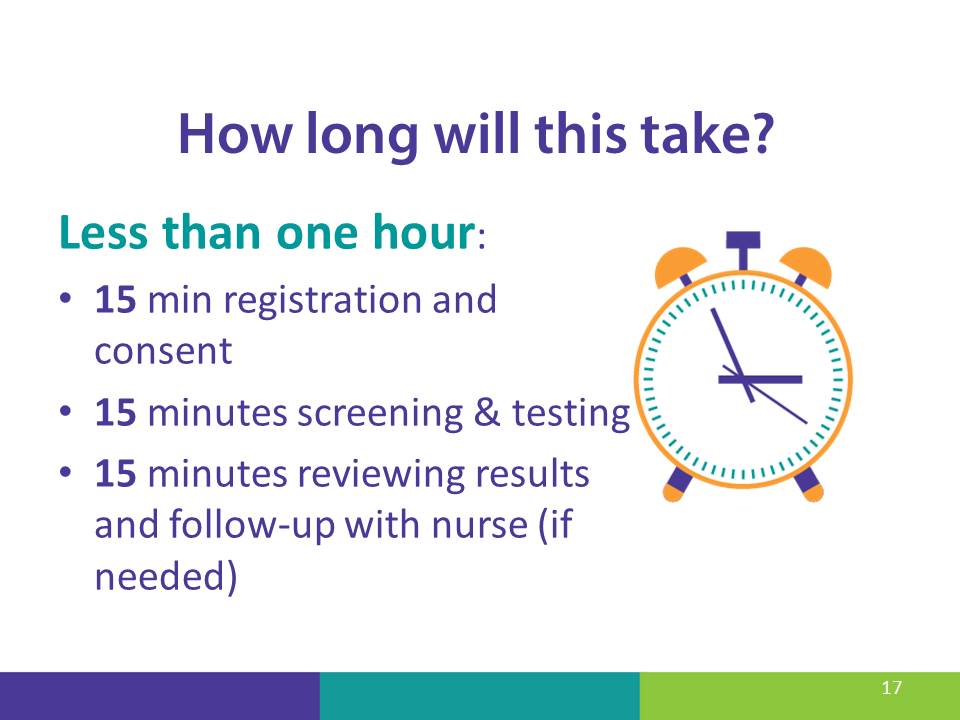
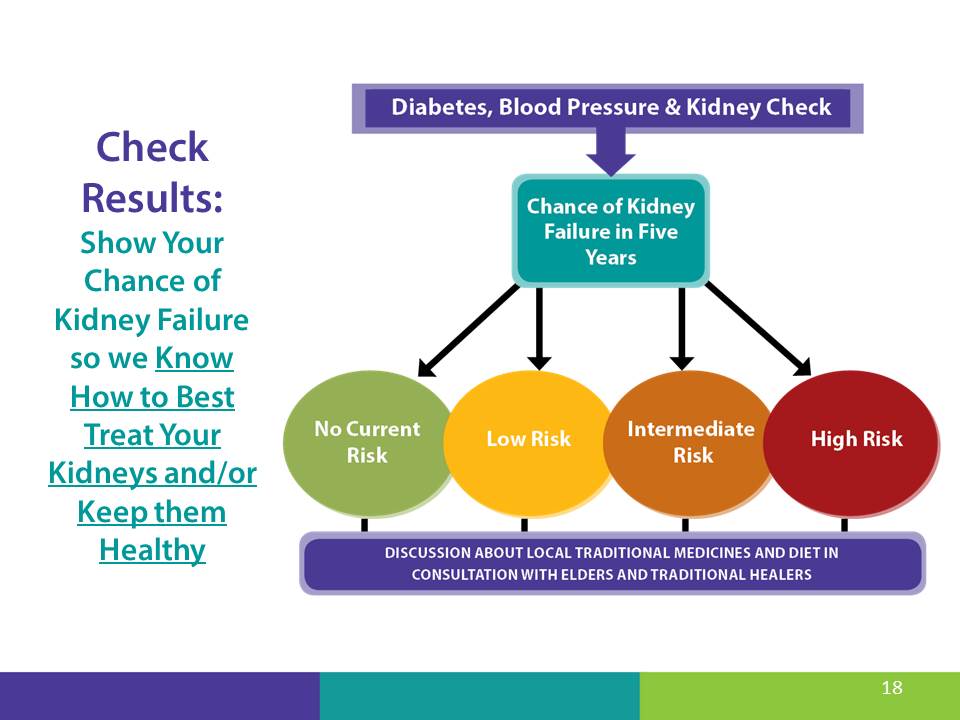
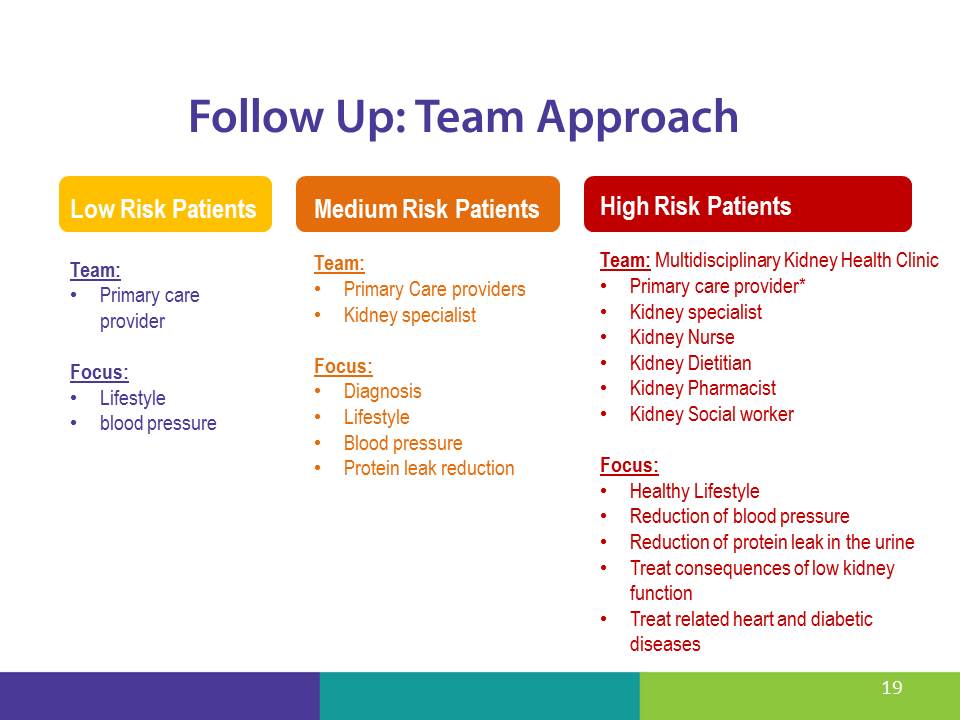
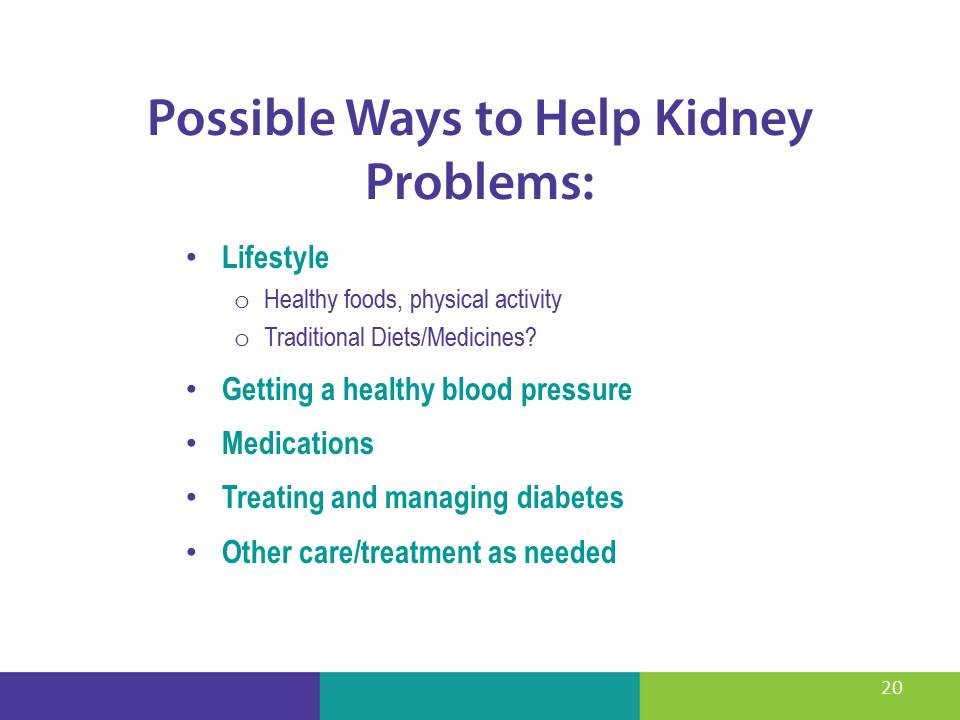
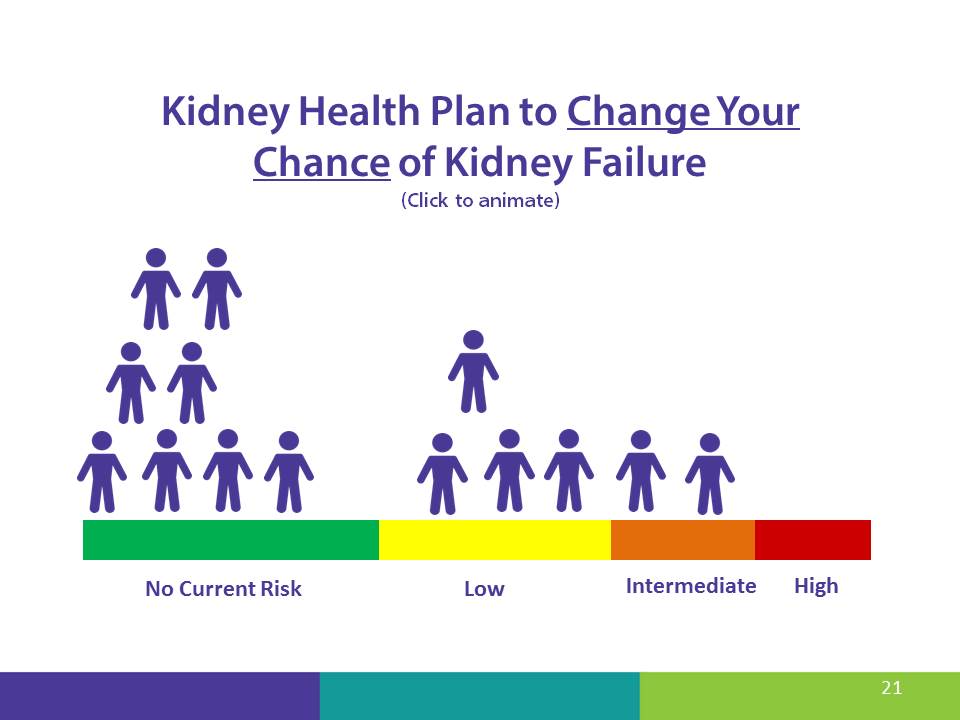
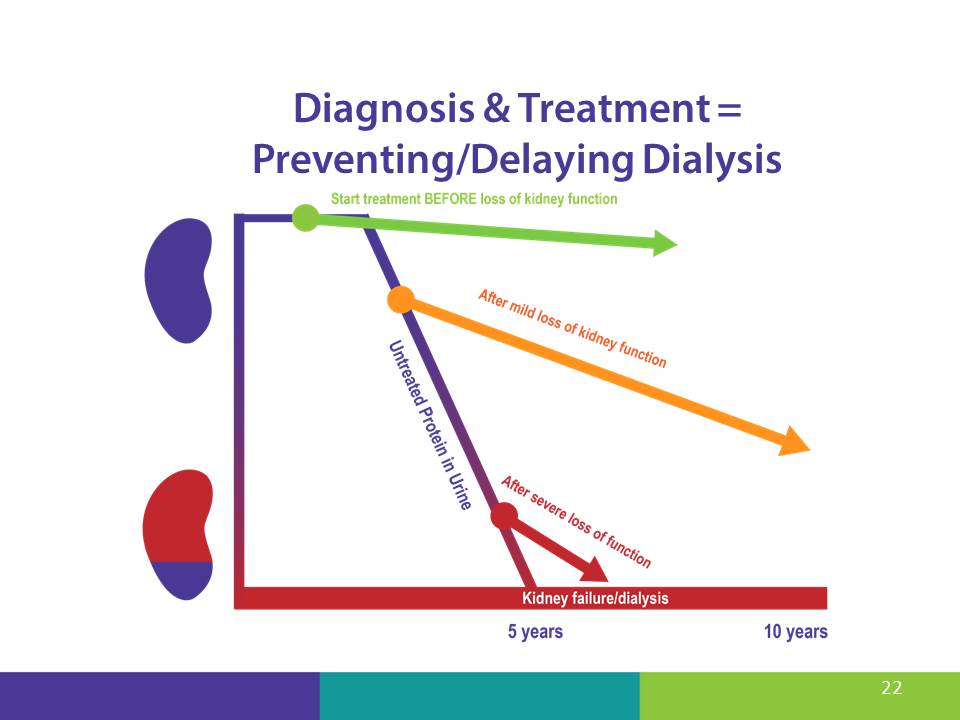
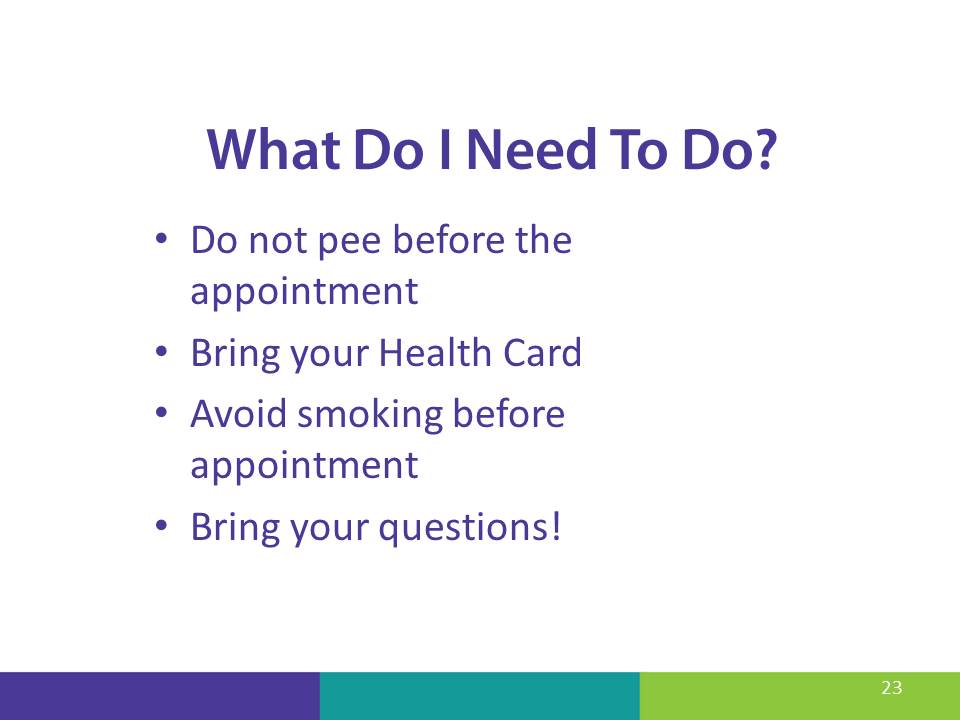

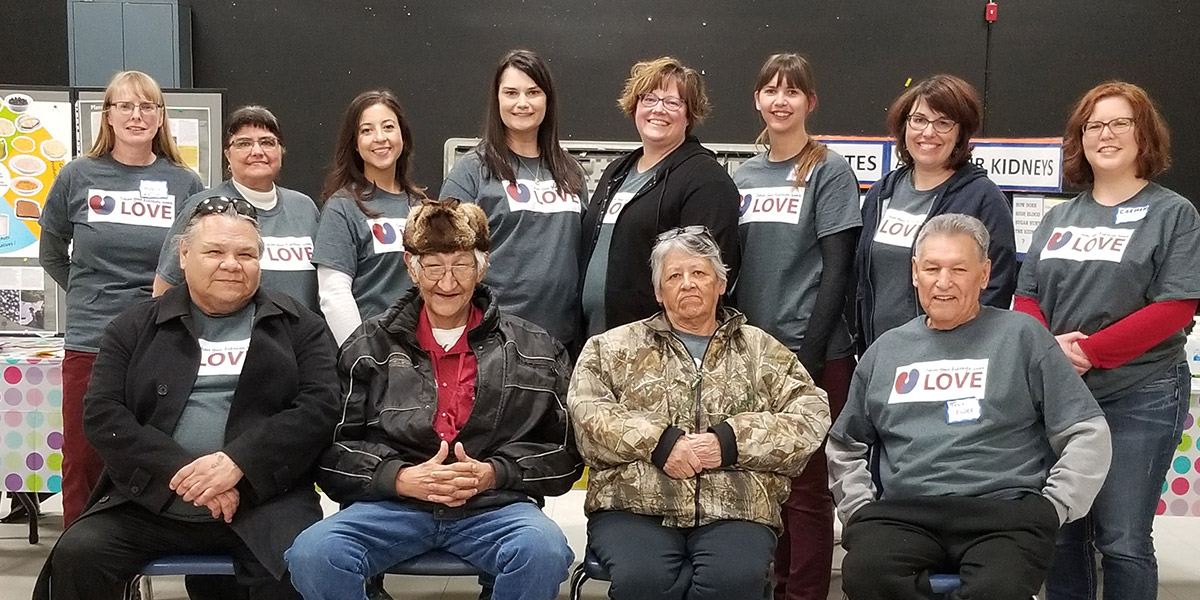 In Canada, there are many educational materials or tools – such as booklets, websites and videos – for patients to learn about chronic kidney disease and treatment options. To meet the needs of patients who aren’t fluent in English or French, some of these tools have been translated into other languages.
In Canada, there are many educational materials or tools – such as booklets, websites and videos – for patients to learn about chronic kidney disease and treatment options. To meet the needs of patients who aren’t fluent in English or French, some of these tools have been translated into other languages.
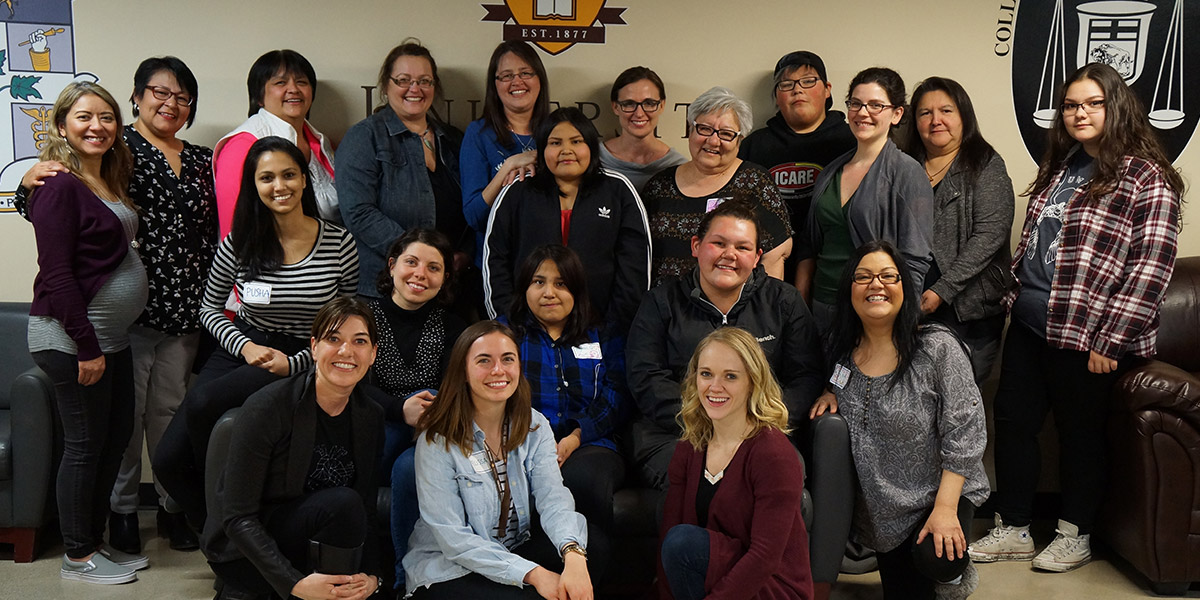 Diabetes is the most common cause of kidney disease in North America. With rates of both type 1 and type 2 diabetes on the rise among children, many youth and their families are concerned about long-term kidney health.
Diabetes is the most common cause of kidney disease in North America. With rates of both type 1 and type 2 diabetes on the rise among children, many youth and their families are concerned about long-term kidney health.
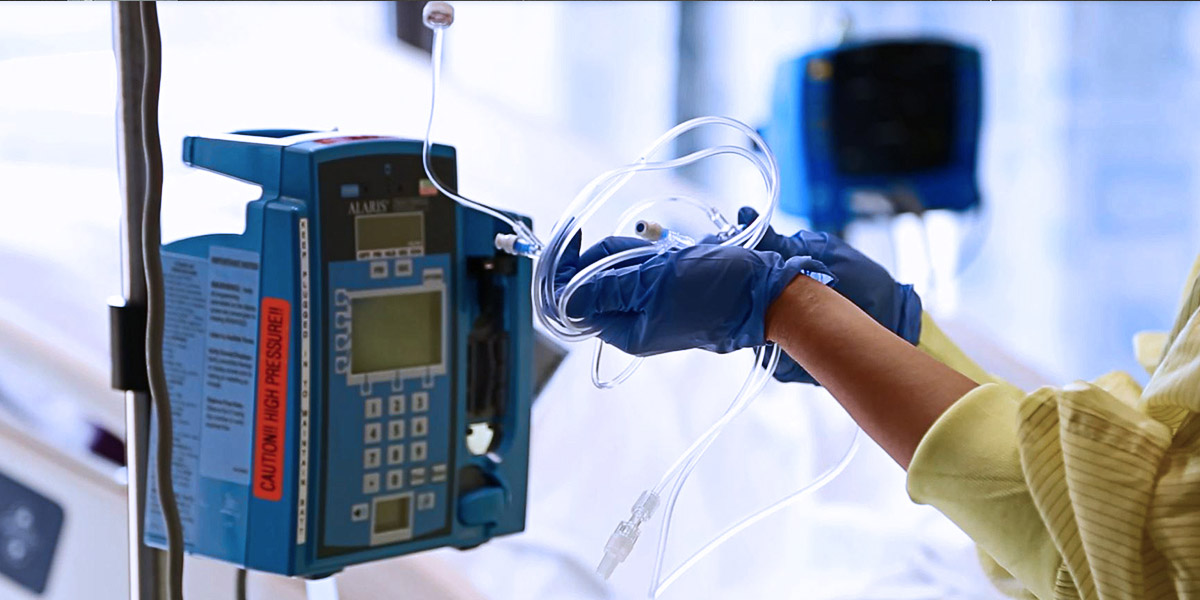



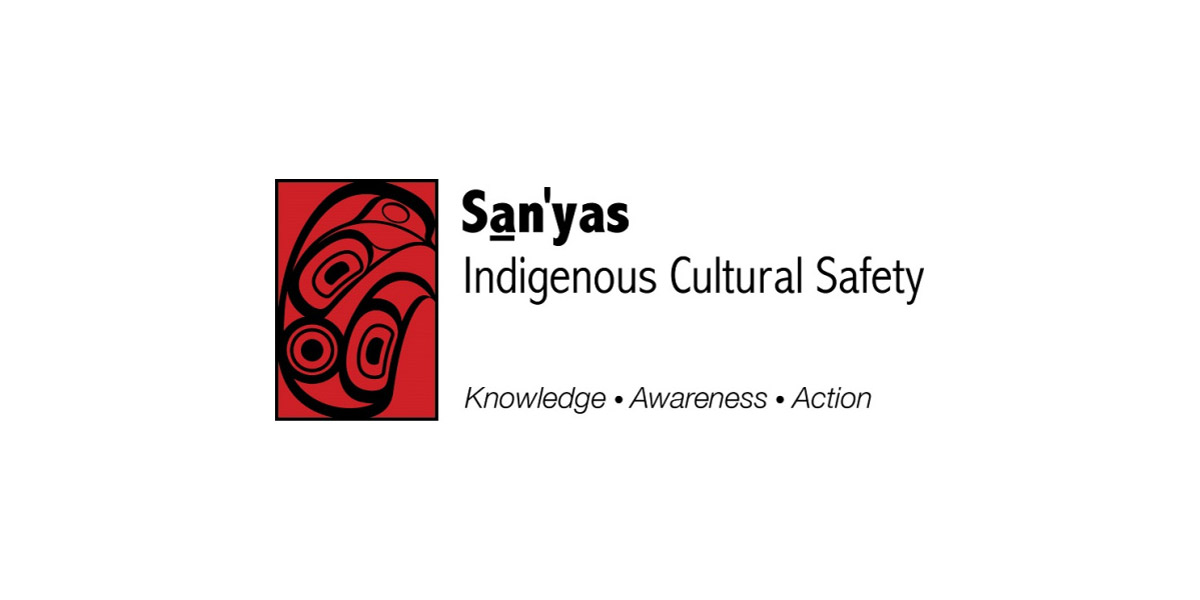 Can-SOLVE CKD is committed to meaningful, respectful engagement with Indigenous peoples in Canada in everything we do.
Can-SOLVE CKD is committed to meaningful, respectful engagement with Indigenous peoples in Canada in everything we do.
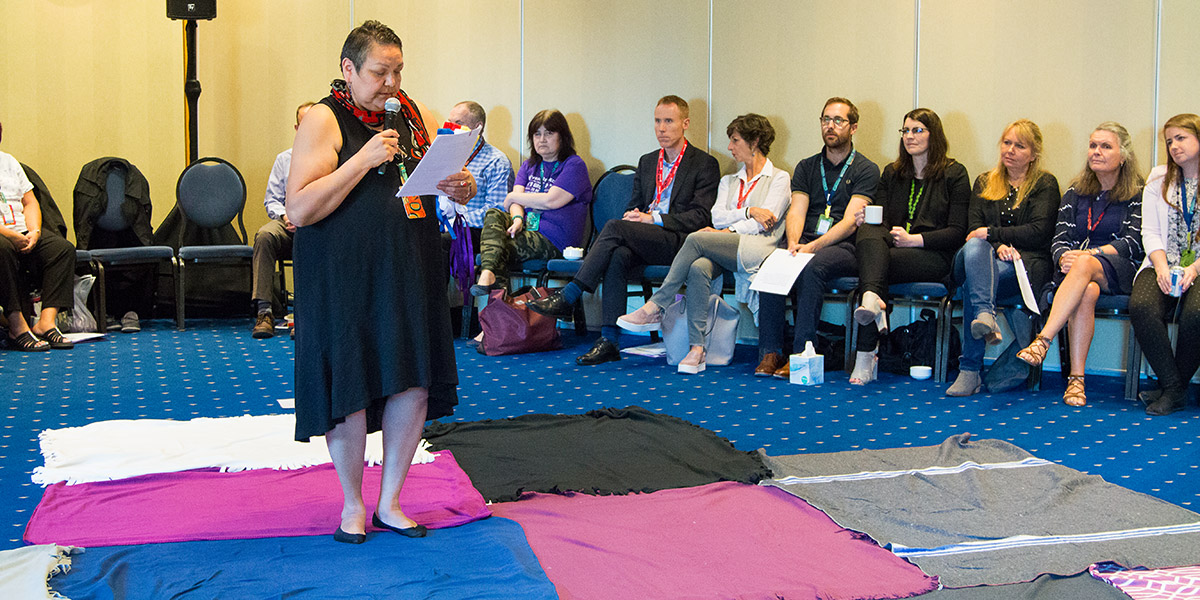 At the 2018 Can-SOLVE CKD Annual Meeting, network members took part in the
At the 2018 Can-SOLVE CKD Annual Meeting, network members took part in the 


Connect with us